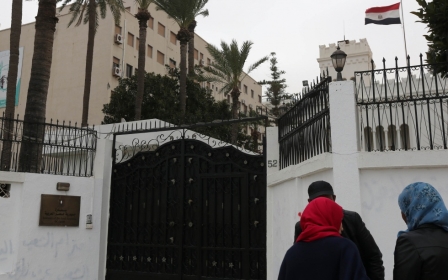Libya's primary oilfield remains closed after fierce battles for control

One of Libya’s main oilfields, al-Sharara, remained closed on Monday more than a week after it was force to stop production due to armed clashes between rival militant groups.
Sharara, a huge field located in south-western Libya, usually produces upwards of 300,000 barrels of oil per day, and when working is the country's largest operational producer of oil.
However, a spokesperson for Libya’s National Oil Foundation said on Monday that the field remains closed because the main pipeline leading to it has been stopped from pumping.
The field was originally shut down almost two weeks ago after guards protecting it were expelled by a mixed group of local tribesmen who are believed to be members of an armed group affiliated to Libya Dawn and workers at the facility itself.
Reuters reported on 10 November that the field was shut down by Libya Dawn forces, who are allied to the contested Tripoli-based parliament, the General National Council, making it the first time the government has made a bid to control the country’s oil resources.
Crude oil is Libya’s primary foreign export, and the energy sector generates some 95 percent of the country’s income.
In the midst of worsening civil strife, which some fear could lead the country into a protracted civil war, oil production has been among the worst-hit industries.
Since the 2011 uprising against long-time strongman Muammar Gaddafi, oil fields have frequently been a target for armed militants seeking to gain control over the country’s resources and finances.
Some 80 percent of Libya’s proven oil reserves are located in the Sirte Basin, a vast desert area in the west of the country extending south into neighbouring Chad.
Libya’s chief of staff, allied to the Tobruk-based House of Representatives, decided on Sunday to establish a military operations room for the central region, which will have authority over much of the area covered by the Sirte Basin.
Libya’s Oil Ministry had expressed a hope last week that oil production would return to normal levels by the middle of November, with up to 1.5m barrels of oil being produced daily.
However, with the continued closure of Sharara and protests spreading through various other facilities, it looks unlikely that this target will be reached – analyst Keith Johnson last week described the return of oil production in Libya as “stunningly improbable.”
Stay informed with MEE's newsletters
Sign up to get the latest alerts, insights and analysis, starting with Turkey Unpacked
Middle East Eye delivers independent and unrivalled coverage and analysis of the Middle East, North Africa and beyond. To learn more about republishing this content and the associated fees, please fill out this form. More about MEE can be found here.




